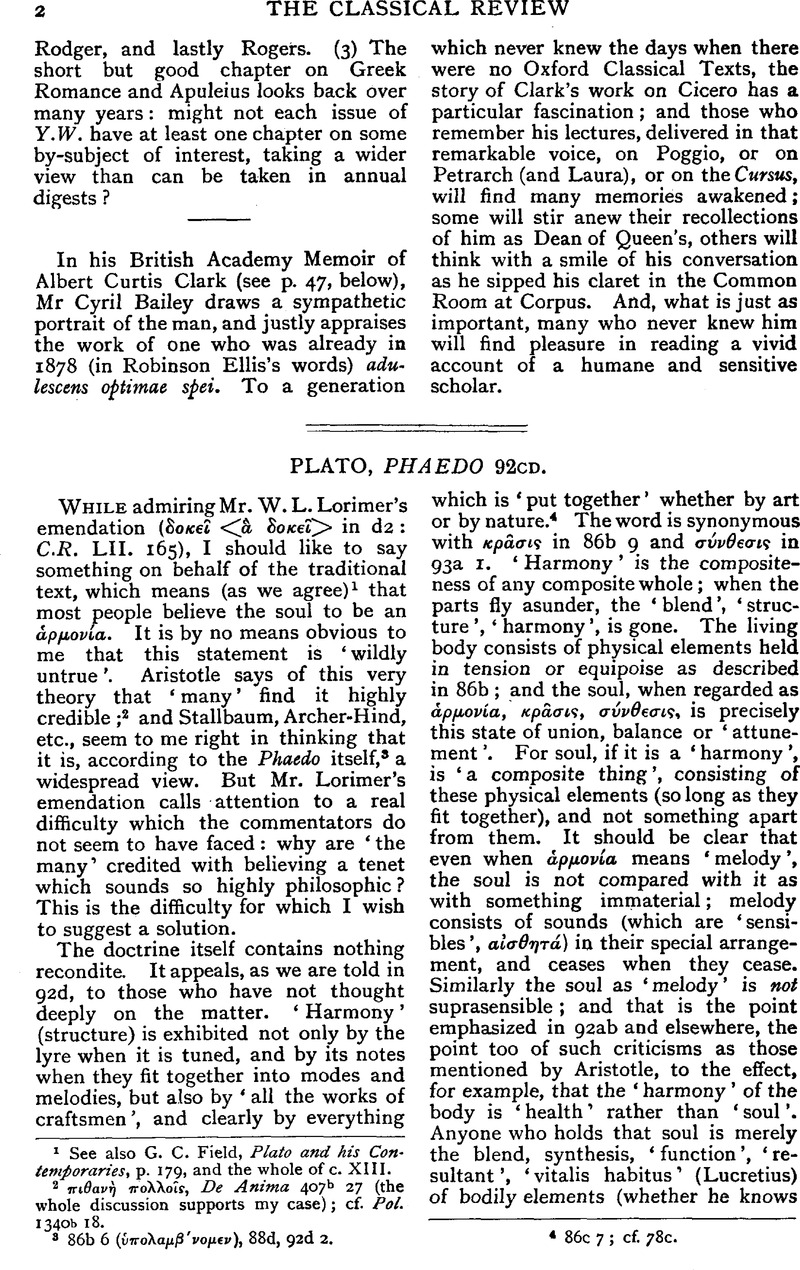No CrossRef data available.
Article contents
Plato, Phaedo 92cd
Published online by Cambridge University Press: 27 October 2009
Abstract

Information
- Type
- Review Article
- Information
- Copyright
- Copyright © The Classical Association 1939
References
page 2 note 1 See also Field, G. C., Plato and his Contemþoraries, p. 179, and the whole of c. XIII.Google Scholar
page 2 note 2 Πιθανή Πολλοίσ, De Anima 407b 27 (the whole discussion supports my case); cf. Pol. 1340b 18.
page 2 note 3 86b 6 (ύΠολμβ'νομεν), 88d, 92d 2.
page 2 note 4 86c 7; cf. 78c.
page 3 note 1 ‘Men in general’, 70a, repeated as ‘the many’, 77b, 80d.
page 3 note 2 All living creatures, etc., are ‘harmonies’ of ‘hot and cold’, etc., when these combine in fitting wise (889b, συμΠέτωκεν áπμóττοντα οίκωσ Πωσ); and this is creation by the ‘blend of opposites’ (![]() 889c l).
889c l).
page 3 note 3 ‘Broadcast among practically all mankind’, 891b. On its antecedents I have written in C.Q. 1936, pp. 48 ff.
page 3 note 4 Macrobius (see RP 86)—a poor authority—says that Pythagoras and Philolaus called soul a harmony. If this is right (which is not likely), a different doctrine must be intended from that which Plato expounds as obviously inconsistent with Pythagoras’ (and, let me add, Philolaus’) belief in immortality and transmigration.
page 3 note 5 Burnet, G.P., p. 153.
page 3 note 6 Phaedo 61e.
page 3 note 7 It has also been suggested (Burnet, G.P., p. 339) that the Timaeus is based on Philolaus' system. If this is so, Philolaus is surely innocent of the áρμονία-doctrine described in the Phaedo. The same conclusion would follow if the treatise on the soul, ascribed to him in antiquity, either was written by him or had any foundation in what he really taught.

